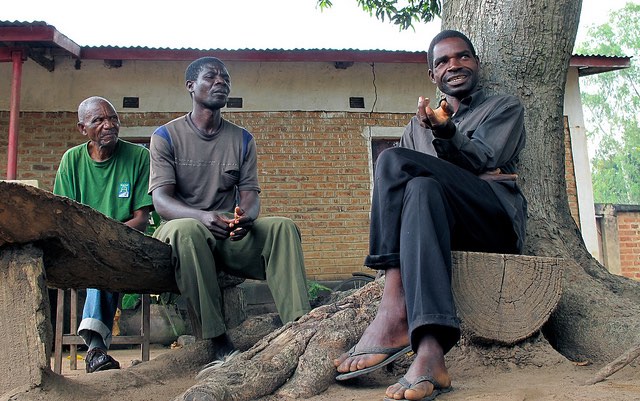Malawi’s agricultural policy is coming up short for farmers. While they receive heavy subsidies for seed and fertilizer, farmers continue to grapple with challenges to food security and productivity. Our recent research examines these gaps in Malawian agricultural policy, focusing on these questions: How can agricultural services best help farmers? And where is the ideal intersection of subsidies and extension services?
Malawi’s Farm Input Subsidy Programme (FISP) showed initial promise—farmers experienced gains in productivity in crops, mainly maize, soon after it began in 2005. But the positive results from its seed and fertilizer subsidies were short-lived, and productivity stagnated. Meanwhile, Malawi faces significant food insecurity issues, with 37 percent of children younger than 5 experiencing stunting. An estimated 6.7 million people were in need of food assistance during the 2016-17 crop year due to severe drought, which led to the creation of the Food Insecurity Response Programme by the Malawi government and its development partners.
Why has the subsidy program yielded neither consistent benefits to farmers nor improved food security? What is missing?
One explanation is the lack of investments on other agricultural and rural services, such as infrastructure, marketing, and information. Government spending on extension services that provide advice and promote knowledge sharing among farmers remains low. Between 2007 and 2012, Malawi spent 52 percent of its agricultural budget on subsidies but only 7 percent on technology and outreach and only 1 percent on extension services.
These priorities point to the underlying problem: Without robust complementary services for farmers such as training in effective management practices, climate resilience, and markets, subsidized agricultural inputs only go so far to improve productivity.
However, context and quality of information are also important. Our study, based on the panel dataset from the Malawi Integrated Household Survey (2010 and 2013), found that providing generalized outreach is not enough; advice to farmers must be locally tailored to be effective.
For each crop studied, households receiving “very useful” agricultural advice saw the largest boost to computed plot-level crop productivity and household food security; while those reporting “not useful” advice are strongly associated with lower levels of productivity and food security. More so than the type of advice or its method of communication to farmers, the relevance of extension advice, often measured by the satisfaction of farmers with agricultural outreach, is a signal of quality and relevance of the information provided and reliable predictor of improved farm-level and household-level outcomes. After all, to farmers, agricultural services are only as helpful as they are useful.
So, when it comes to effective agricultural extension services, content is key. These results suggest ways to better target extension services: (1) Get feedback from farmers as consumers of agricultural outreach products; and (2) Use the findings to create timely, reliable, relevant outreach materials that go beyond the current focus on crop production (mainly chemical fertilizer and modern seed varieties) to include markets, agro-processing, other livelihoods, nutrition, and climate resilience, all tailored to local conditions.
Providing such services is no easy task. A recent synthesis note highlights that this would require bold actions from state and non-state providers including changing these mindsets, reforming performance management systems, and fostering a culture of learning and coordination. The note also highlight some institutional arrangements and incentive systems that potentially can change researchers’ and extension workers’ behavior to improve the links between research and extension services and sustain the supply of timely and useful technical advice to producers.
Being able to draw on useful and appropriate agricultural outreach in addition to smarter subsidies shows to be a winning combination for farmers. Malawi should reconsider its agricultural spending priorities in favor of a balance that brings capacity building to the forefront.
Catherine Ragasa is a Research Fellow in IFPRI’s Development Strategy and Governance Division. John Mazunda is Country Program Manager for IFPRI’s Nigeria Strategy Support Program.







